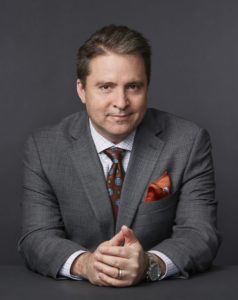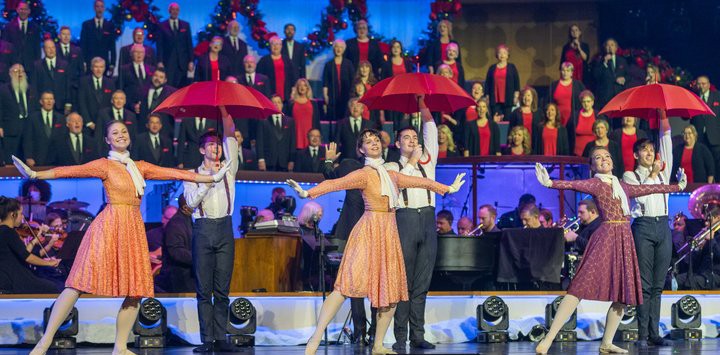When asked in October to list their top concerns, white evangelicals listed abortion, fair presidential elections and terrorism.
The coronavirus didn’t make the cut, noted Robert P. Jones, CEO and founder of the Public Religion Research Institute.
“Looking at their list of critical issues, you would not know we are in the middle of a pandemic that was going to kill 300,000,” said Jones, whose agency presented the information as part of a newly released study, “The Coronavirus Pandemic’s Impact on Religious Life.”
The survey presents the perspectives of Black, Hispanic and white Catholics and Protestants, members of non-Christian faiths and the religiously unaffiliated on topics ranging from social distancing, mask wearing, in-person worship and the impact of COVID-19 in respondents’ personal lives.

Robert P. Jones (Photo by Noah Willman)
What stands out, Jones said, is the degree to which white evangelicals remain increasingly apart from most other religious Americans in most categories.
The disparity is evident in the study’s presentation of Americans’ key topics by religious affiliation. In it, eight of the nine groups included identify the pandemic as a top-three critical issue. Six of them, including 79% of African Americans and 72% of Hispanic Catholics, put it at the top of concerns they deem critical.
The distance between white evangelicals and other people of faith found in the survey is in keeping with the findings of previous studies on American religion, Jones said.
“The exceptionalism we see among white evangelicals is consistent, and we have seen this become more entrenched during the Trump era,” he said. “It’s evangelical Protestants against everyone else on the coronavirus.”
White evangelicals also are alone with a majority who believe the extent of the pandemic was inevitable, PRRI found.
Among Americans as a whole, almost seven in 10, or 69%, said they believe the coronavirus could have been controlled. That includes 85% of Black Protestants, 84% of non-Christian religious adults, 78% of the religiously unaffiliated, 75% of Hispanic Catholics, 74% of Hispanic Protestants, 65% of white Catholics and 57% of white mainline Protestants.
Then there were three in 10 nationwide who said the outbreak was inevitable, led by white evangelicals. “White evangelical Protestants are the only religious group who are more likely to say that the outbreak was inevitable (55%) than to say it could have been controlled better (44%).”
Why would white evangelicals be bent on denying that the pandemic could have been prevented or lessened in impact? Jones believes it has more to do with politics than religion.
“I’m skeptical that theology is doing much work here,” he said. “I think it’s about loyalty to Trump and about protecting Trump. They say the pandemic was inevitable so that President Trump doesn’t shoulder the blame.”
The inevitability issue is another finding in the survey that conforms to white evangelical support of the Republican Party and conservative causes.
“This pandemic has really exposed the strength not only of their conservative partnerships but also their fealty to one particular political leader.”
But the latest project teases out their devotion to the 45th president, Jones said. “This pandemic has really exposed the strength not only of their conservative partnerships but also their fealty to one particular political leader who is casting doubt on facts and who has been the source of so much misinformation about the pandemic.”
White conservative Christians have put their political loyalty and their beliefs about the pandemic into action by advocating for religious exemptions for social gatherings during the coronavirus outbreak, PRRI reported.
About 54% of Americans were opposed to such exemptions, including 75% of the religiously unaffiliated, 67% of non-Christian religious Americans, 63% of Hispanic Catholics and 53% of Black Protestants, the survey found.
Overall, 44% of Americans expressed approval of opening houses of worship to in-person services even when governments have limited other gatherings. This belief is led by white evangelicals at 75% and white Catholics at 59%.
“In the Catholic world, there was a 25-point difference between white and Hispanic Catholics,” Jones said. “Of course, Hispanics are less likely to agree with in-person services because the Hispanic community has been hit much harder by the coronavirus.”
The impact of COVID-19 experiences on religious attitudes was documented in other sectors of the population.
“Hispanic Protestants (26%) and Black Protestants (23%) are the most likely religious groups to face at least one of these COVID-19 illness situations in their household,” PRRI reported. “Fewer Hispanic Catholics (15%), white evangelical Protestants (14%), religiously unaffiliated Americans (11%), other Christians not included in any other category (10%), and white mainline Protestants (10%) report experiencing one or more COVID-19 illness situations. Few white Catholics (6%) and non-Christian religious Americans (6%) report one or more of these experiences.”
More than six in 10 Black Protestants reported knowing someone who either had been hospitalized with or died from COVID-19.
More than six in 10 Black Protestants reported knowing someone who either had been hospitalized with or died from COVID-19. “Look how hard it’s hit the African-American community. That really sticks out,” Jones said.
Similar breakdowns were found on the topic of mask wearing. PRRI found 78% of Americans said they “always wear a mask when in public places.” Only 3% said they never do.
“White evangelical Protestants (63%) stand out as the religious group least likely to say they always wear a mask,” the report noted. “Around eight in 10 or more of nearly every other religious group say they always wear a mask, including 85% of non-Christian religious Americans, 82% of religiously unaffiliated Americans, 80% of other Christians, 79% of Black Protestants, 79% of Hispanic Catholics, 78% of white Catholics, 78% of Hispanic Protestants, and 77% of white mainline Protestants.”
The theme is consistent, Jones added. “Who stands out? White evangelicals.”
Related articles:
Why you should cancel your in-person indoor Christmas Eve service | Mark Wingfield
As COVID cases soar, court’s retreat opens doors of churches

